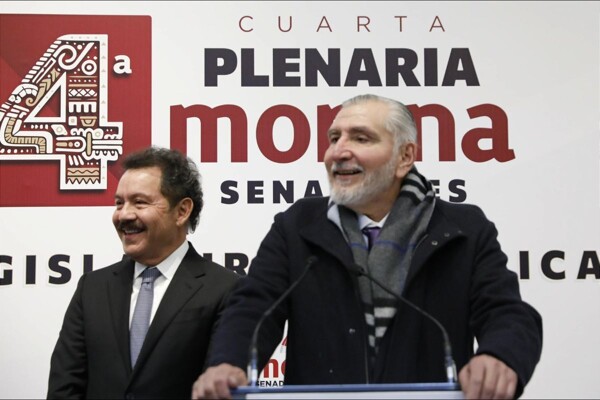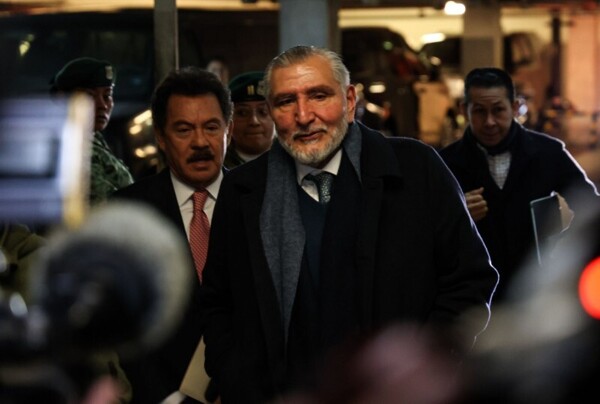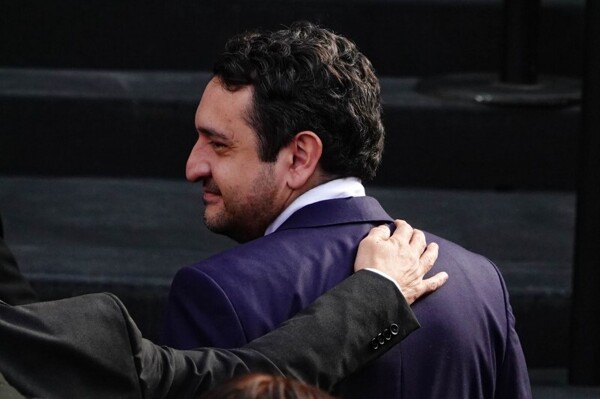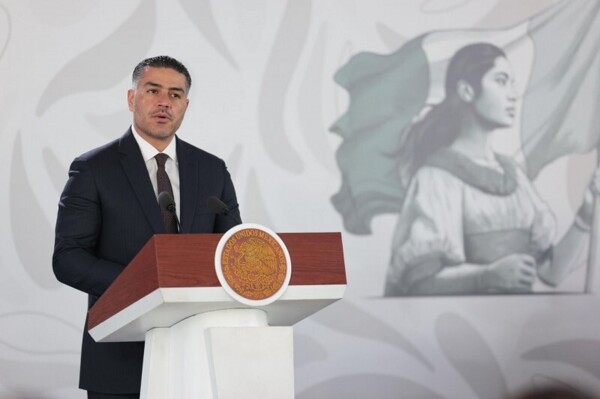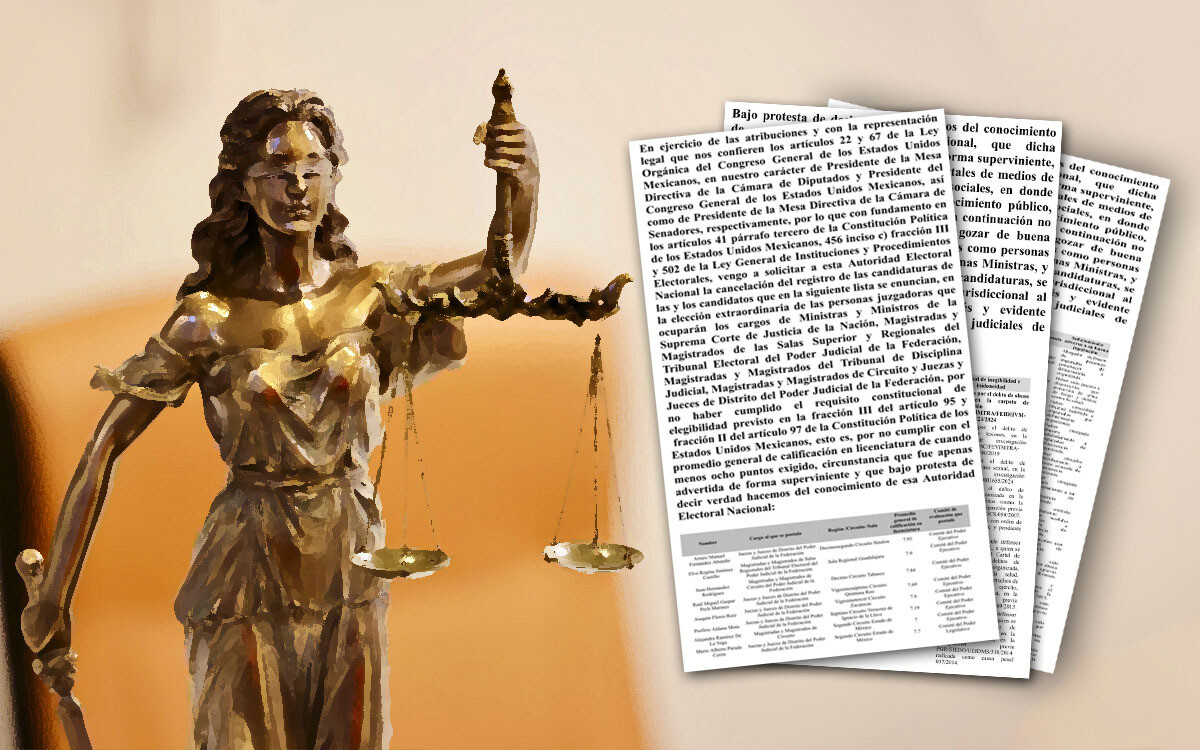
The presidents of the Senate and the Chamber of Deputies, Gerardo Fernández Noroña and Sergio Gutiérrez Luna, respectively, presented before the National Electoral Institute (INE) the challenge of 26 candidacies for the judicial election to be held on June 1.
18 of these candidacies do not meet the constitutional requirement of 'having a good reputation,' as they are linked to ongoing federal criminal investigations for serious crimes such as sexual abuse, embezzlement, threats, injuries, and organized crime. Therefore, the cancellation of their registration was requested. Another eight candidacies do not meet the overall average qualification score in their degrees of at least eight points. These candidacies were presented by the Legislative, Executive, and Judicial committees.
The report presented confirms the existence of investigation files and arrest warrants against some of these individuals, and documents that they have acted as defenders of individuals related to organized crime, which compromises their impartiality and represents a conflict of interest.
Gutiérrez Luna emphasized that the election by popular vote does not exempt compliance with ethical and constitutional requirements to access the judiciary, and that suitability is an ethical imperative to protect the legitimacy of the Judiciary.
Candidacies for positions of judges and magistrates in different circuits and courts across the country were also challenged, whose documented academic averages range from 7.0 to 7.93. This directly affects the suitability of the candidates and shows non-compliance with the legal bases of the process, as pointed out by the presidents of the chambers. They added that the academic requirement is a minimum parameter of professional and ethical quality.
Finally, they requested the INE to proceed with the cancellation of the registrations of these candidacies to preserve integrity, impartiality, and public trust in those who will be responsible for administering justice in the country.
On April 23, prior to this challenge, Fernández Noroña had announced that the Upper Chamber would challenge before the Electoral Tribunal of the Judiciary of the Federation about twenty candidates for judges in the election scheduled for June 1, who were linked to drug trafficking.
The next election for the Judiciary will take place on June 1, with 99.7 million voters called to choose for the first time 881 positions from among 3,422 candidates, which include the Supreme Court, the new Judicial Discipline Tribunal, and the Electoral Tribunal. Campaigns began on March 30 and will conclude on May 28. There have been alerts from opposition, international organizations such as the UN, and civil associations regarding a possible interference from the Executive Branch and organized crime in the elections.











